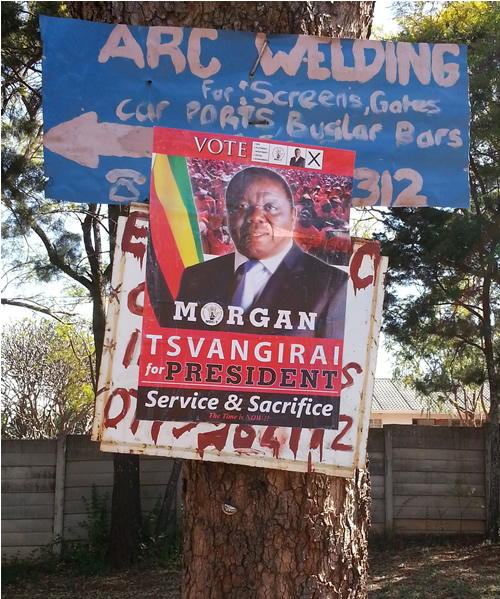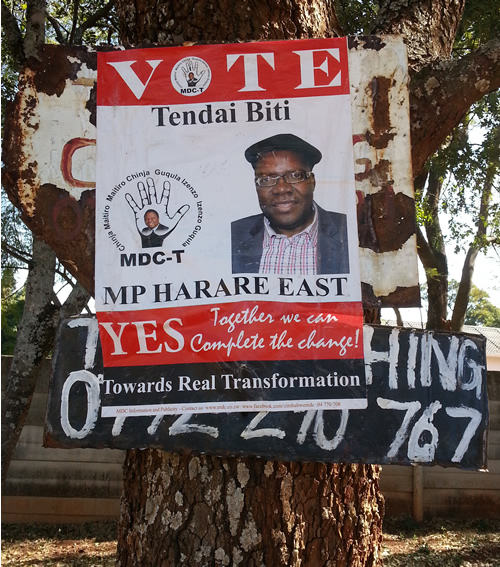It’s always fascinating trying to understand why people choose to vote for a particular party, and as the political rallies hot up with Mugabe scaling down his itinerary, political party colours have become vogue, never mind that some wear these T-shirts emblazoned with party leader effigies for reasons that have nothing to do with political affiliation but everything to do with the area they find themselves in.
But it is another thing altogether to get convincing responses concerning how one arrives at choosing the political party to support.
I sat with two young men over the weekend who were preparing to go to an MDC-T rally somewhere in the capital.
They proudly wore the party colours and were literally fired up for the occasion. Opposite them sat another young man who wore a Zanu PF cap that bears the image of Robert Mugabe.
And then the two young men felt compelled to pour out to me why they were so passionate about the party they had chosen to support.
I was told one was a pharmacist, while the other said he had done some management degree at the University of Zimbabwe.
“Look at me my brother, I am wearing my younger brother’s jeans because he has more money than me but I am more educated than him,” one of them with the UZ education said. I looked at him and indeed the pair of jeans was that kind of tight fit with “borrowed” written all over them!
“For me, the MDC-T is the only party that might give me a chance to get the job I trained for. Look at this guy, he is a pharmacist but works at a supermarket,” he said referring to his colleague.
And the colleague went into a long tirade about his circumstances, why he felt Zanu PF had outlived its usefulness, if it ever had any.
These were two angry young men for whom the future of the country rests in new ideas that will spring them from their misery despite all the education they boast.
The other chap wearing the Zanu PF cap seemed amused and had no input whatsoever, but then it turns out these are chaps from the same neighbourhood for whom tolerance of divergent political views perhaps comes naturally.
As we sat, along came this other guy who told a third older man that there was a Zanu PF rally across the road, “why don’t you come along?”
The older man responded, “look who I am sitting with,” pointing at the red T-shirts the young men were wearing. “You should join us instead. Why are you going to the Zanu PF rally in the first place?”
I saw the chap blush and he responded: “Ah, ndinongondzwa chiyifarira.”
And that was the end of it.
It got me thinking about all the manifestos that the parties have put out, if at all the ordinary party supporters actually read through them to decide their vote, yet some of the issues that came out from encounters with these young folks were based on the pragmatic, such as the demand for jobs by these two “educated” lads.
That’s why many find it laughable that a party that has been in power for 33 years can today talk about unlocking a USD2 trillion economy.
These become nothing but wild numbers that the new crop of young voters will interrogate and when a guy like Kasukuwere says “we are emancipating our people,” the younger voters laugh and dismiss him as a fraud.
Yet, as everything during elections, politicians will say all sorts of nonsense to woo voters, and what this country certainly needs right now are enlightened voters. But then a corollary of that would be, are there any enlightened political parties?
/It is always sad to come face to face with young people who choose to own other people’s anger and vindictiveness without interrogating the implications of their choices and actions and where such behavior affects the way we are governed and the future of democracy in our country. From Grace Mutandwa’s memoirs, The Power and the Glory/.











